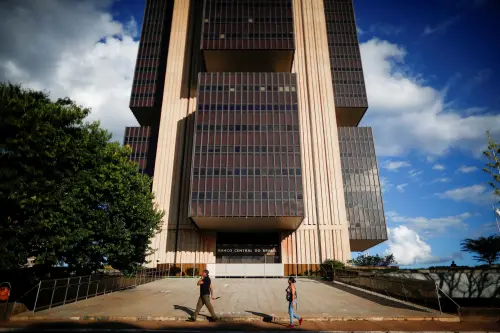Brazilian financial institutions are indicating higher fiscal risks and a deteriorating economic outlook for the next three years in Latin America's largest economy, as per a central bank survey released on Thursday. Out of the 91 institutions surveyed, 52 pointed to the fiscal situation as the main threat to financial stability, a notable increase from 42 in the previous quarterly survey in November.
The survey highlights ongoing market apprehensions regarding Brazil's economic conditions, driven by elevated interest expenses and increasing mandatory expenditures, particularly during the tenure of leftist President Luiz Inacio Lula da Silva. Financial institutions are displaying reduced risk appetite and a less optimistic view on asset prices, funding accessibility, and liquidity.
Globally, the primary concerns for the upcoming three years are linked to U.S. economic policies and geopolitical tensions. There is a heightened worry about default risks and economic activity, with over half of the respondents indicating a perception of economic contraction, a significant rise from just over a quarter in the previous survey.
In response to stronger-than-anticipated growth and a tight labor market placing upward pressure on inflation, policymakers have raised interest rates by 275 basis points to 13.25% since September. The central bank has hinted at an additional 100 basis-point increase at its forthcoming policy meeting in March while emphasizing continuous monitoring of economic indicators to confirm any signs of a slowdown.
